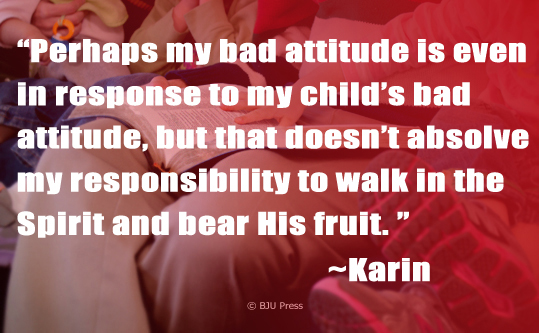
“Daddy!” My five-year-old will routinely exclaim before telling me about something her little sister has broken. I explain that toddlers break things. Then I try to fix whatever toy or block creation has been destroyed. When I do, my five-year-old expects the restoration to match the pre-broken condition. I wish I could do that for her every time, but I can’t.
Recently, I wrote on how the fall twists education in ways that we as Christian homeschool parents need to be aware of. But that raises two questions for us: Can it be straightened out? Do we as parents have a role in straightening it out? We find answers to these questions in the story of redemption and its implications for Christian homeschooling.
God’s Plan for Redemption
Immediately after Adam’s reluctant disclosure of sin, God began the work of redemption. He told Satan: “I will put enmity between thee and the woman, and between thy seed and her seed; it shall bruise thy head, and thou shalt bruise his heel” (Genesis 3:15).
In this first promise of redemption (sometimes called the protoevangelium), a promised seed defeats the evil seed. Let’s explore three aspects of this redemptive plan that can shape the way we view our children’s education.
Redemption Involves Conflict
There is enmity between Satan and Christ. Throughout redemptive history, Satan attacked God’s people in an attempt to stop the coming Messiah. When Christ came, the devil tried to take His life and was able to “bruise his heel.” But the cross inflicted the mortal wound, and ultimately Christ will cast the evil one into the lake of fire (Revelation 20:10).
All of life is a series of skirmishes in this cosmic battle. Satan cannot create anything, so he takes God’s good creation and twists it into weapons against its Maker. So math, reading, science, and history aren’t creations of the devil, but he will seek to use them against the Lord.
Redemption Leads to Restoration
Even though our sinful hearts are eager to cooperate with the evil one in twisting every good part of creation, God intends to straighten it out. Take cities as an example. We’re tempted to think cities are evil at the core. The first city was built by a murderer (Genesis 4:17), and throughout history cities have been centers of all kinds of vice.
But cities were part of God’s creational plan; it was sin that twisted them for evil purposes. In the original creation, God gave humans a mandate to rule over creation and filled the Garden of Eden with all the raw materials needed to develop cities.
In the final chapters of the Bible, we see the culmination of redemption coming in a city. God’s work of redemption pushes cities to their creational purpose.
God created an order for all things. The Fall pushes everything away from that creational purpose, and redemption pushes it toward its creational design.
Redemption Is Comprehensive
Sometimes we’re guilty of thinking redemption only applies to individuals, but it’s as comprehensive as the Fall. Scripture promises a new heaven and a new earth where lions return to their creational design and eat straw like oxen (Isaiah 65:25). Even human use of metals is redeemed as the people of the nations beat their swords into plows (Isaiah 2:4).
Much of this comprehensive redemptive work comes after a final judgement of evil. As long as there is sin, things will be twisted.
Our Role in God’s Plan for Redemption
God’s plan for redemption is confrontational and restorative. It is as comprehensive as the Fall. So what role does homeschooling our children play in His plan?
Redemption in Our Minds
There is a New Testament expectation that we engage in this redemptive confrontation in our minds. Paul instructs us that “the weapons of our warfare are not carnal, but mighty through God to the pulling down of strong holds [and] casting down imaginations, and every high thing that exalteth itself against the knowledge of God, and bringing into captivity every thought to the obedience of Christ” (2 Corinthians 10:4–5).
A critical part of redemption is waged in our minds. Every thought must be pushed back to its created order—obedience to Christ. That includes thoughts about math, science, literature, and history. Wherever we encounter thinking that is contrary to Scripture, we must refute it and then replace it with redemptive thinking.
Redemption in Our Homeschooling
As parents, we play a critical role in shaping our children’s thinking in all areas of life including when we’re teaching reading, writing, and arithmetic. Deuteronomy 6:7 tells us to diligently teach them God’s ways on every subject in every circumstance all the time. We shouldn’t be surprised to find that evil twists every part of our lives, but we must prepare ourselves to confront disobedient thoughts in the subjects we’re teaching. And we should respond by pushing that thinking toward Christ.
Read about how a biblical worldview shapes Christian homeschooling on our blog.



